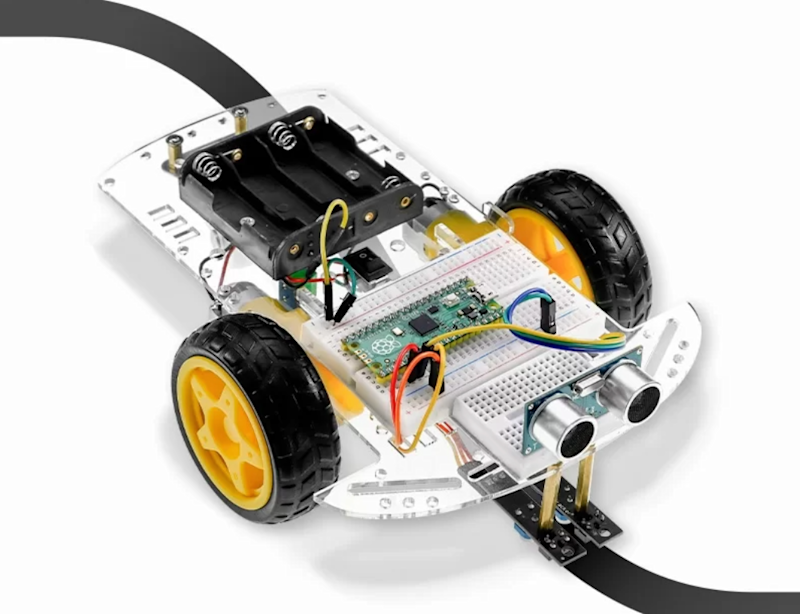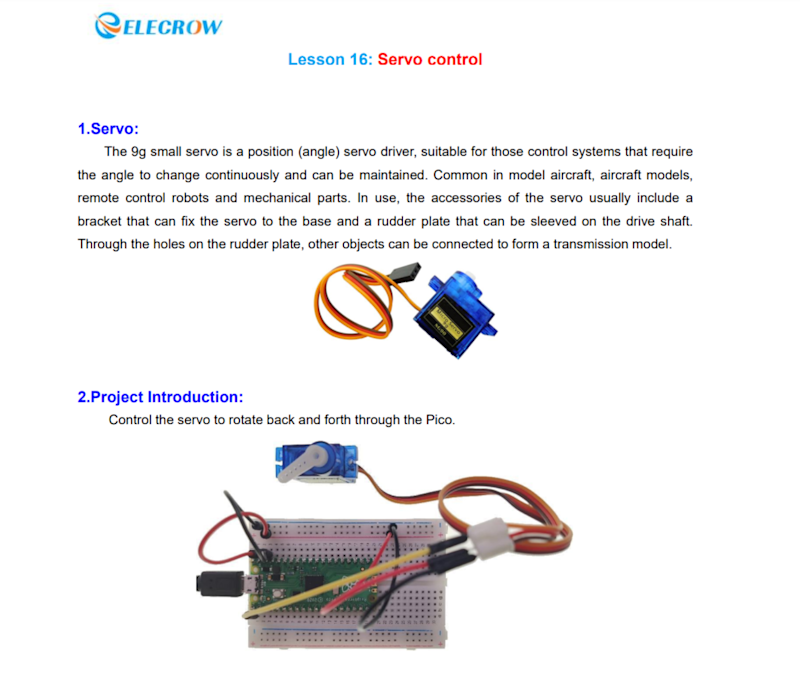This kit also has 32 guides from Elecrow with things you can make with the components using the more standard MicroPython language on Pico – and credit to the team, there’s not a huge amount of overlap with the types of projects as well.
Advanced learning
Despite being called an Advanced Kit, it does let you start from the very basics – getting your Pico to blink its own LED. Then other LEDs. Then switches. Before you know it, you’re measuring distances with ultrasonic sensors, creating Catherine Zeta Jones-style laser traps, and even building a robot arm. The difficulty curve for the projects is fairly good, and tutorials will concisely explain how different components work to better your understanding.

At the end of the book you’ll build a robot and program it, but it really doesn’t stop there. With all the different things you’ve made, it’s very easy to get ideas to create new projects or combine other ones to extend their functionality.
Much like this magazine, the guides list the code example and allow you to download it separately in case you need to check it (or just don’t feel like typing it up from scratch).

With the price and number of components, this really is one of the best ways to help a curious maker learn a ton about electronics, Pico, and coding. You could even upgrade a lot of the projects with a full Raspberry Pi. It’s something we’re definitely keeping close to us for future projects, although we may need to make a Toby Sensor using parts from the box to keep it safe.
Verdict
10/10
Packed full of projects at a very reasonable price, this starter kit will follow even an experienced maker around.
Specs
Microcontroller: Raspberry Pi Pico or Pico W
Components: Sensors, jumper cables, robot kit, breadboards, LEDs, inputs, hand tools
Language: MicroPython







